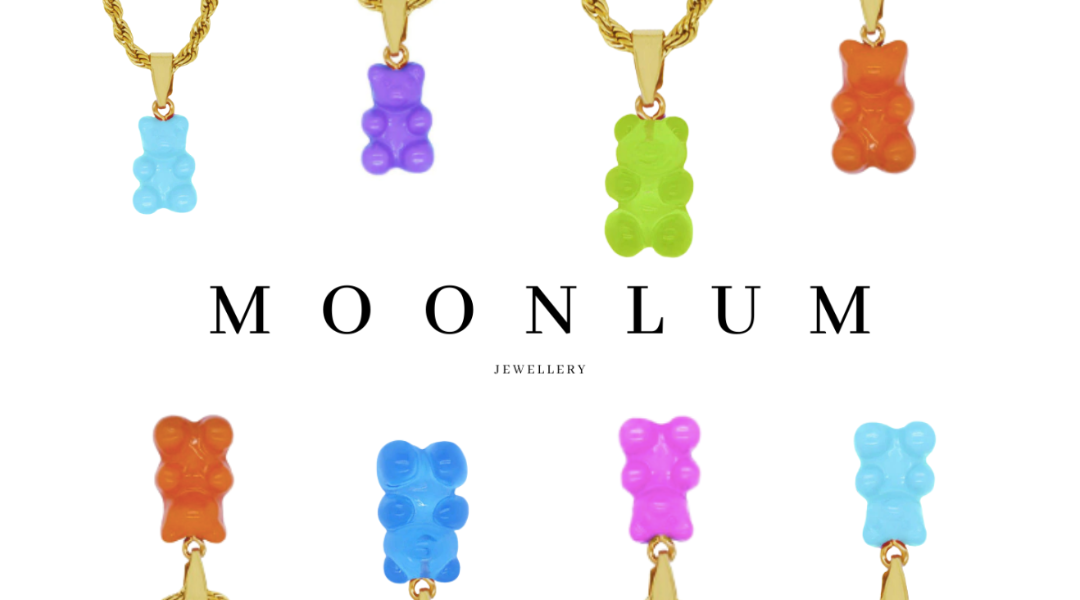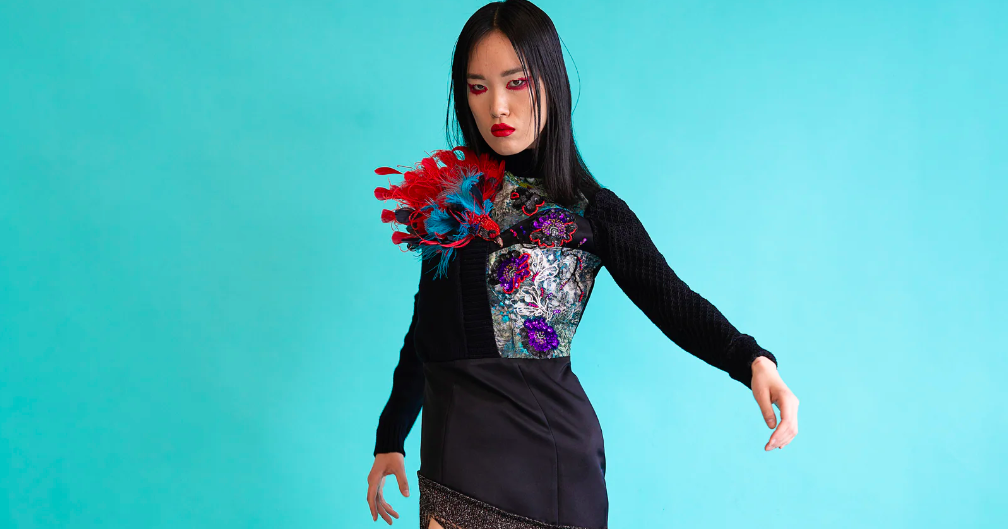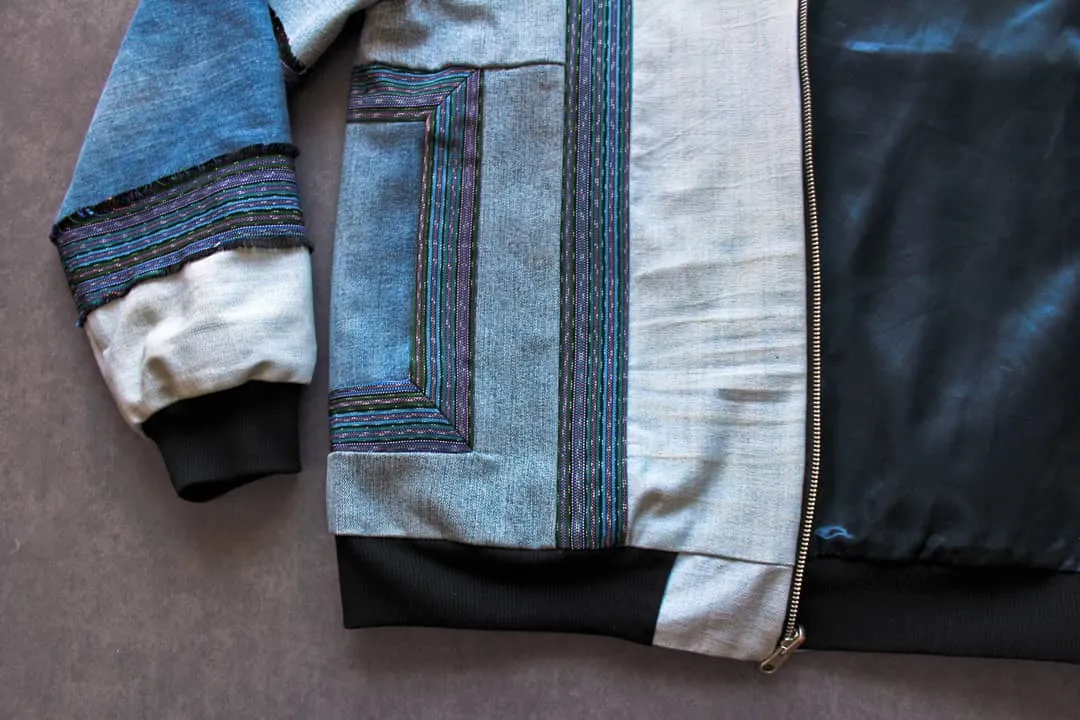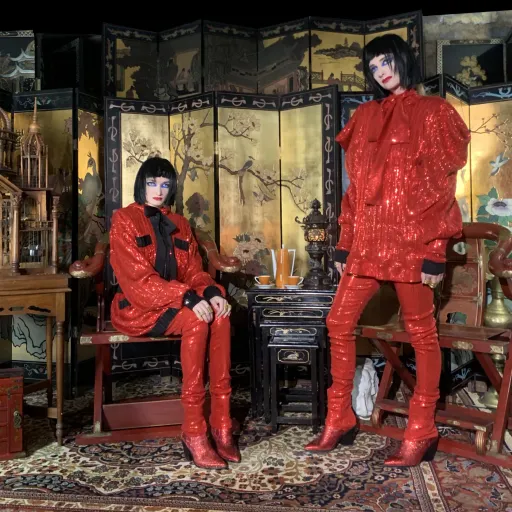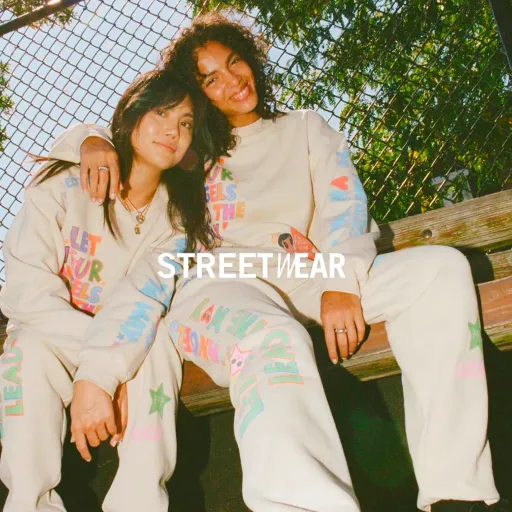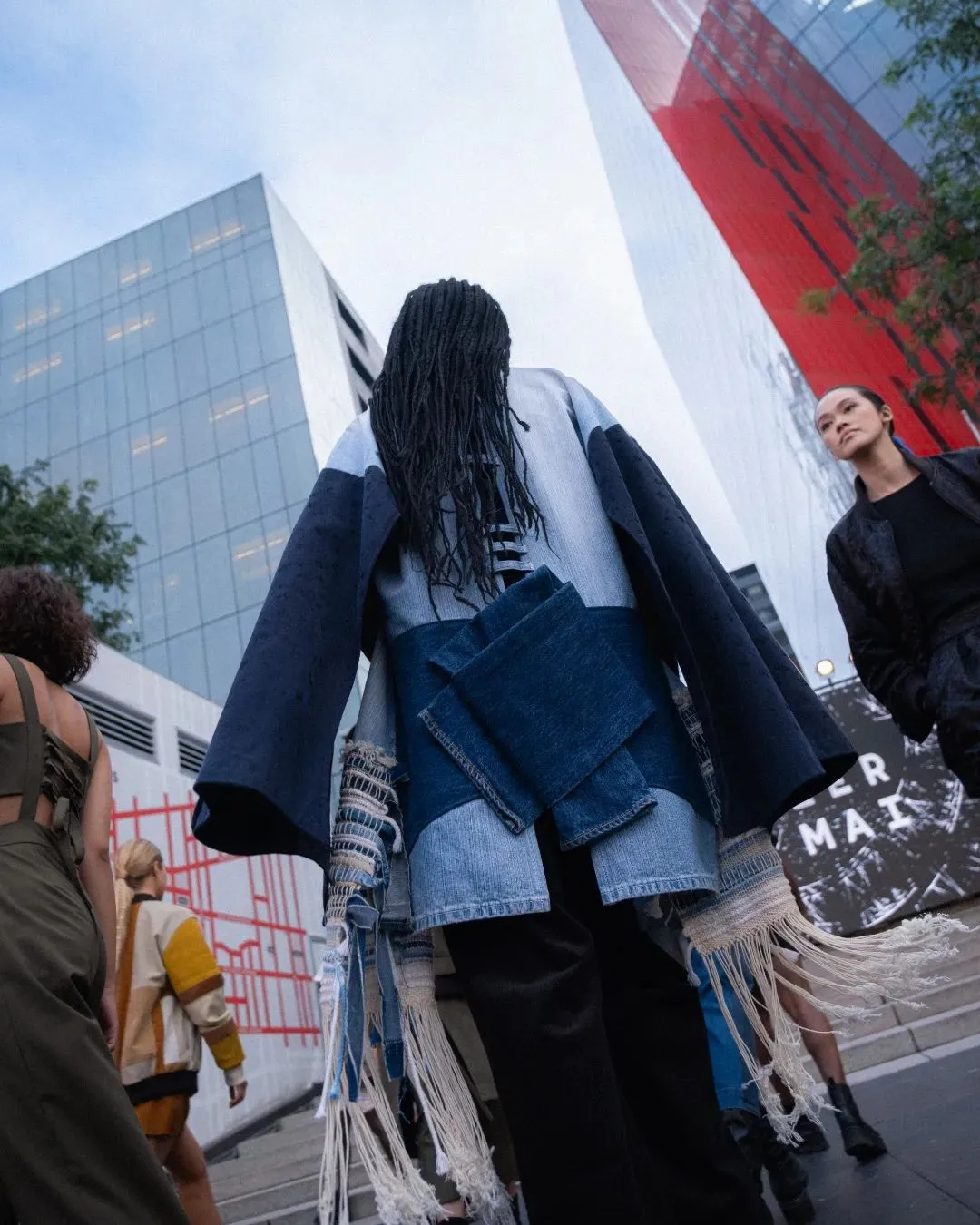
1ER MAI: A Fusion of Craftsmanship and Hip-Hop Culture
Reading time: 4 mins
By Angèle Simon
Located on Chabanel Street, in the Cité de la mode in Montreal, Ysaline’s workshop is filled with creativity, chill vibes, and positive atmosphere. This is where we met her, surrounded by the pieces of recycled jeans, well-cut patterns and her new collection, which she was actively producing. Accompanied by a little background of old school hip-hop music, the designer begins to share her journey in the world of fashion design.
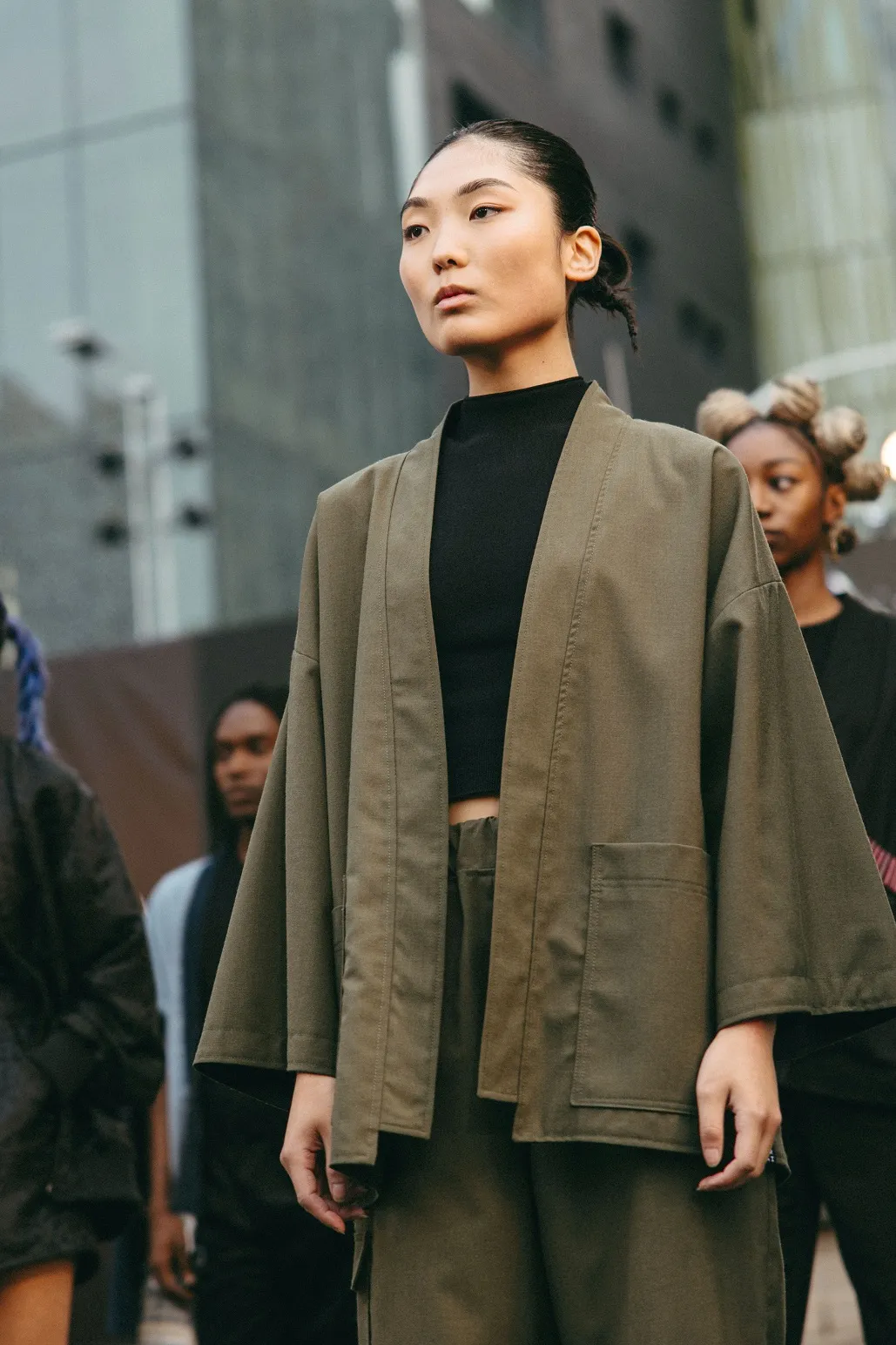
The Exploration of Fabric
Born in France and raised in Quebec, Ysaline began sewing with her mother at the age of 13. She was immediately intrigued by the hands-on aspect of sewing and its medium: fabric. After pursuing studies in another field, Ysaline eventually returned to school to deepen her knowledge of sewing. She completed her program in Fashion Design with a specialization in fur at Cégep Marie-Victorin. Graduating in 2014, the designer went on to work for several companies before officially launching her own brand in 2021.
However, it was in 2017 that the designer began to explore her creative identity through denim. People in her circle provided her with tons of worn-out jeans for her to repurpose in her designs. This sparked her passion for this fabric, which became a key element in many of her early creations.
From Craftsmanship to Recycling
Ysaline also sees herself as a craftsperson. From the beginning, she has been exploring materials and artisanal techniques such as weaving, macramé, embroidery, and patchwork, seamlessly integrating them into functional and timeless garments.
"Craftsmanship is truly at the heart of my practice; the hands-on aspect will always come through, even in a simple garment."
Expertise is an important aspect of her creative process. The designer ensures a perfect fit, thereby ensuring that her creations are suitable for everyone. She also offers to make all pieces according to the measurements of the clients. Each piece is carefully sewn by Ysaline's hands, and this attention to detail extends to the small denim braids that can be found on some of the pieces signed 1ER MAI. This is a part of her work that she wishes to further explore by learning new techniques or collaborating with other local artists.
Ysaline recycles everything. From military fabrics to old, unwearable jeans, down to small threads, the designer transforms everything she finds into true wonders. Generally, people often associate recycling with something not very aesthetic, a bit tacky. However, with 1ER MAI, Ysaline aims to break down beliefs associated with this practice.
"I want to elevate recycling to its former glory. Often, people think of recycling as something of low quality, a bit rough around the edges, but I want to elevate it so that it speaks to people who love fashion too."
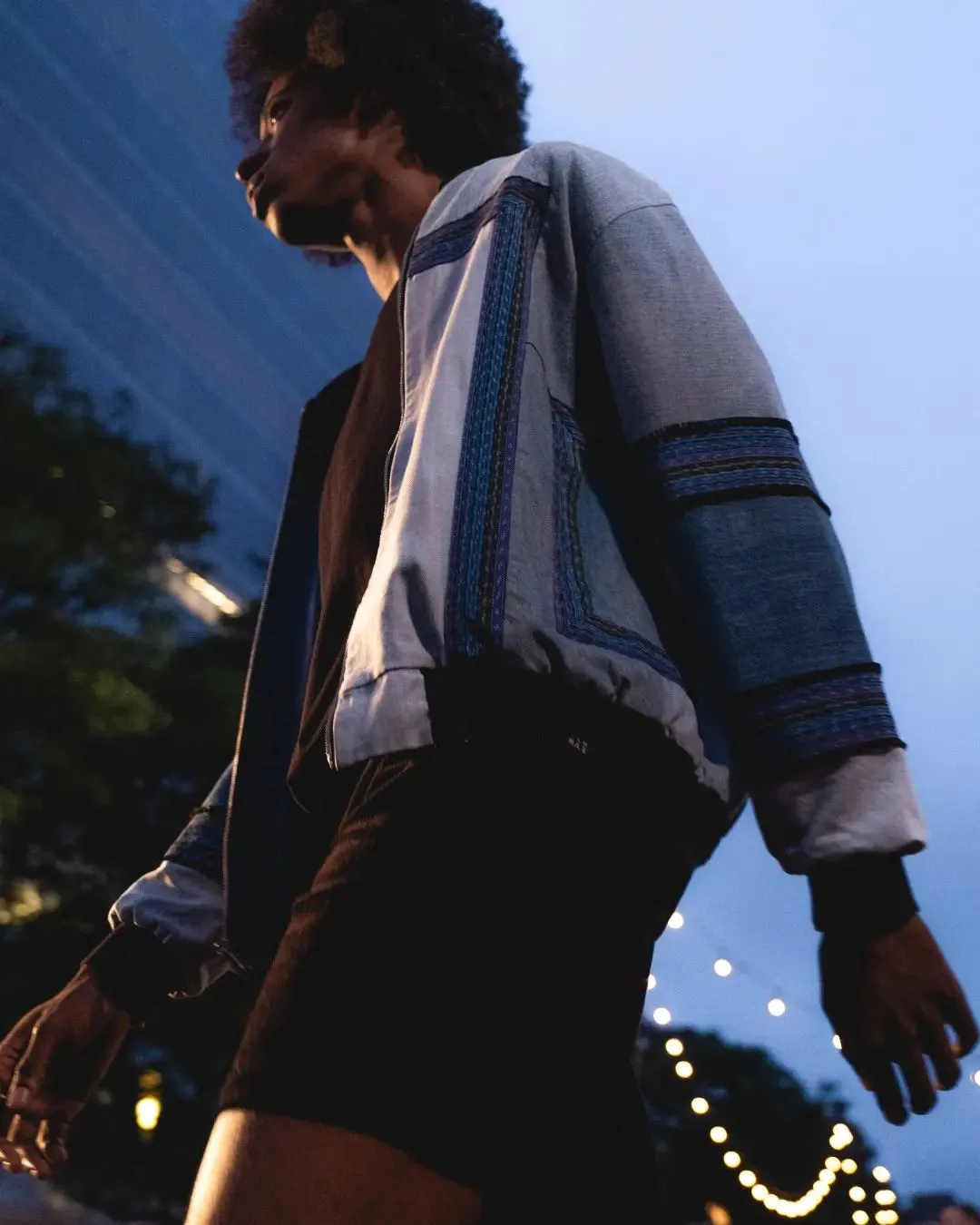
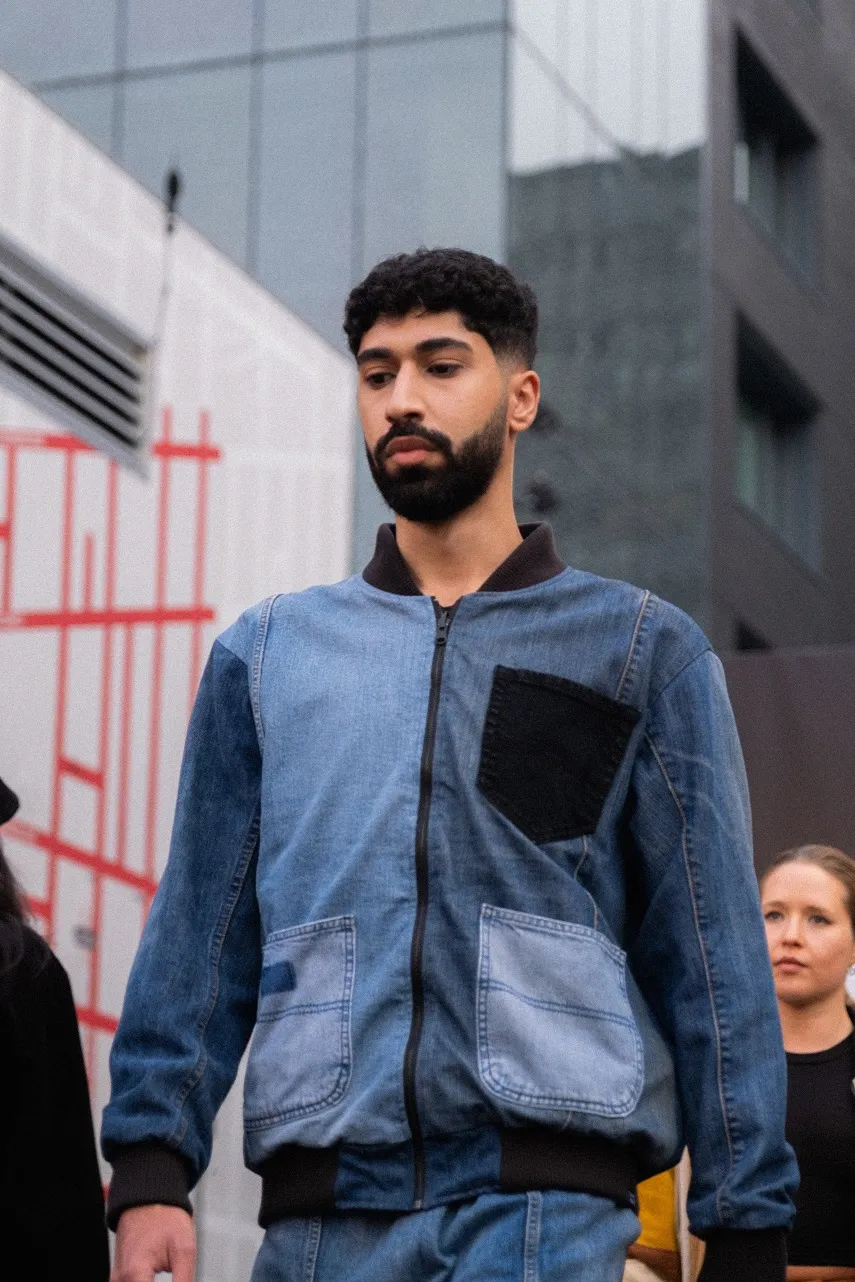
A Blend of Influences
1ER MAI is a beautiful mix of functional, clean, and understated styles, drawing inspiration from Asian and hip-hop influences. In the new collection, there is a jacket inspired by the kimono, crafted from recycled fabric that originally dates back to 1989 and was produced in Quebec, for the Canadian army. Ysaline has always found inspiration in military uniforms, workwear, and hip-hop culture. The choice of the name 1ER MAI (1st of May) is not arbitrary—it signifies the Labor Day in many countries and is also a symbol of spring in various calendars. In addition to being a statement on workers' rights and renewal, 1ER MAI is also a reaction to fast fashion.
The brand is, therefore, a fusion of various influences, sometimes converging in a single garment, such as the bomber jacket. This piece holds great significance for the designer as it marks the beginning of her sewing journey. It is also a garment that has transcended eras and social backgrounds; the bomber jacket is the first military clothing item that successfully transitioned to civilian wear, embraced particularly by hip-hop artists.
However, what matters most to Ysaline is understanding the people around her and how they feel when they wear her clothes.
"Each garment falls differently on someone, and for me, it's like a perpetual study."
A Certain Responsibility
For Ysaline, being a designer also comes with a certain responsibility—a responsibility to strive to do things right, to educate consumers, and to create high-quality products that respect the planet and people. In today's fashion industry, there are so many gray areas that it's challenging for consumers to navigate and consistently make ethical choices. Ysaline believes that responsible consumption starts with the value one attributes to a piece of clothing.
"For me, a more responsible way of consuming starts with our relationship to clothing."
Whether it's a thrifted dress, your grandmother's coat, or a designer piece, what truly matters is the meaning you attach to that garment and the care you will give it. So the next time you get a new piece, think about that!
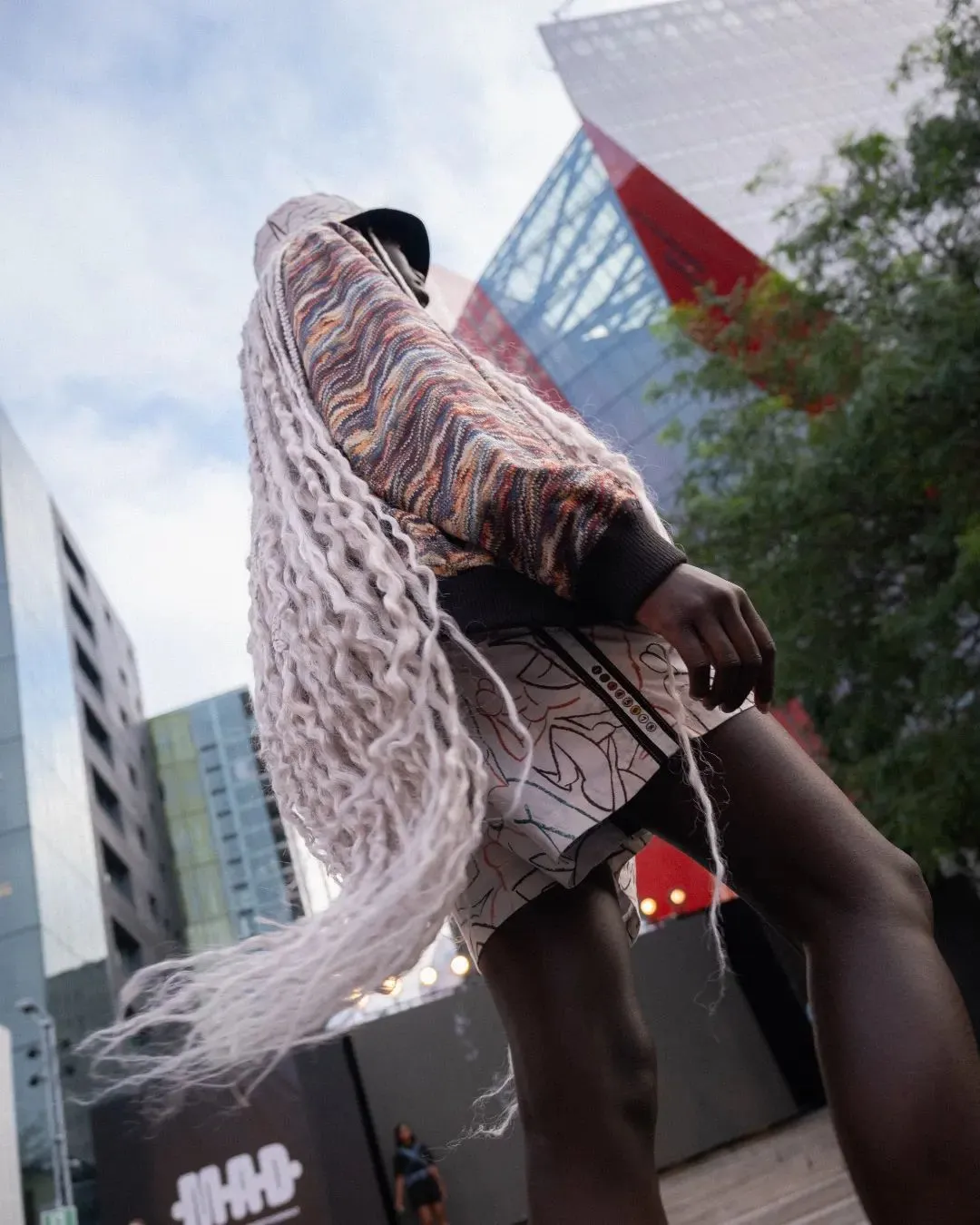
More editorials

